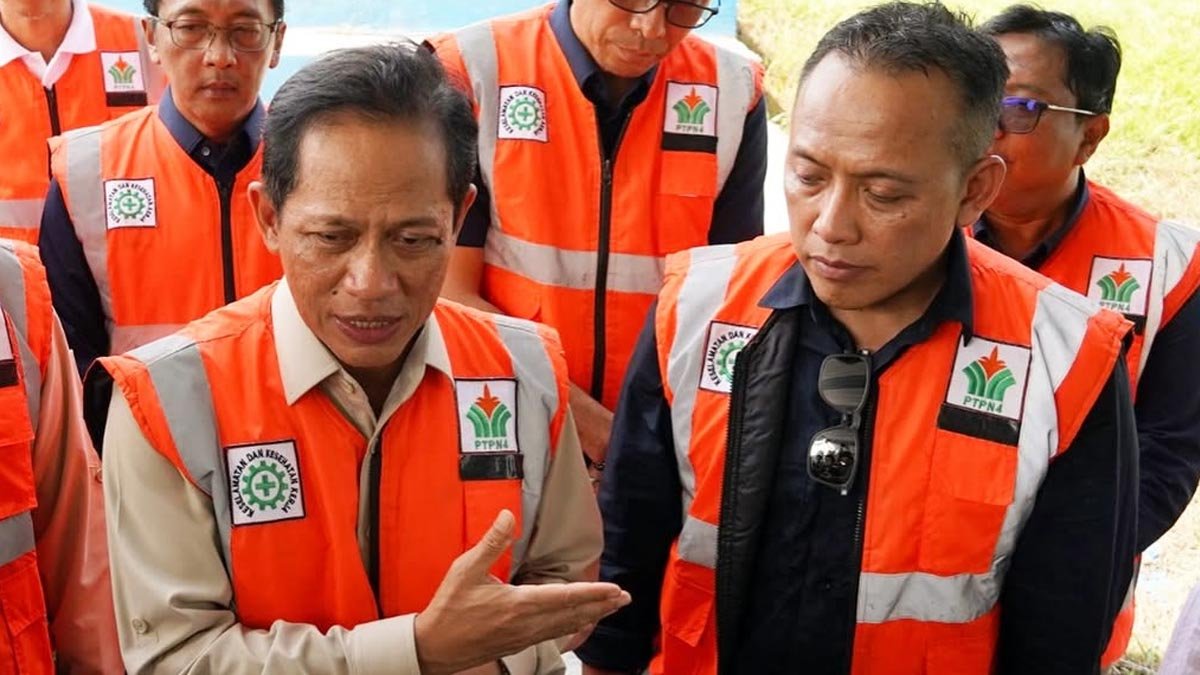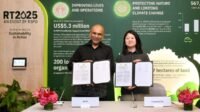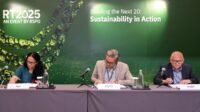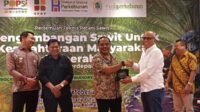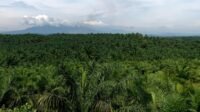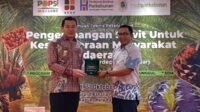PALMOILMAGAZINE, DELI SERDANG – Indonesia’s Minister of Environment and Head of the Environmental Control Agency (BPLH), Hanif Faisol Nurofiq, emphasized the crucial role of Palm Oil Mill Effluent (POME) management in reducing greenhouse gas emissions. He made this statement during a visit to the Biogas Power Plant (PLTB) owned by PTPN in collaboration with Pertamina in Pagar Merbau, Deli Serdang, North Sumatra, at the end of 2024.
During the visit, Hanif highlighted the waste sector’s significant potential in supporting Indonesia’s global emission reduction commitments.
“If we can meet our target with 36 million tons of CO2 equivalent, we fulfill our global pledge to reduce greenhouse gas emissions from the waste sector. POME alone has a substantial capacity to contribute to this effort,” he said, as reported by Palmoilmagazine.com from Palmco’s official Instagram on Sunday (March 9, 2025).
Also Read: PT Menthobi Karyatama Raya Tbk Builds Biomass Plant, Optimizing Palm Oil Waste for Renewable Energy
He also pointed out that effective POME management could serve as a strategy to counter negative international campaigns against Indonesia’s palm oil industry.
“This initiative can be a tool to counter the black campaigns against palm oil, which are often promoted by foreign entities,” he added.
The PLTB in Pagar Merbau stands as a successful example of utilizing palm oil waste to generate renewable energy. By converting POME into biogas, the plant not only reduces carbon emissions but also creates economic benefits for the industry and local communities.
The Indonesian government continues to encourage the palm oil sector to adopt eco-friendly technologies to enhance the sustainability of the industry. Beyond minimizing environmental impact, this approach strengthens Indonesia’s position in navigating global challenges and regulations related to carbon emissions and palm oil sustainability. (P2)

